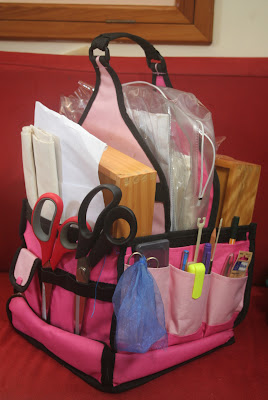I've always wanted to knit. I've tried to learn a few times since I was a teenager but it never stuck. But when my best friend Liz announced that she was having a baby I was determined this time I would master it. A quick Google search revealed a gorgeous
hooded baby blanket that I fell in love with. This was going to be my first knitting project. Jumping in the deep end knowing nothing about knitting patterns, needles and yarn weights there some confusion about what yarn to use. I couldn't get the blend used in the pattern so I ended up using 100% pure Australian Merino wool which was lovely to knit with and gave the finished blanket a nice softness.
The internet was invaluable, YouTube videos in particular. Both with knitting and crochet I have trouble figuring out what to do from diagrams so being able to watch someone going through the steps on a video was fantastic.
 |
| My edging is thicker than the one in the pattern. The body of my blanket didn't knit out to the required 60cm , so I made the difference up in the edging. |
 |
| I love stockinette stitch, it looks so neat and pretty. |
 |
| Joining the hood section with the main body of blanket using mattress stitch. |
This project required me to learn how to knit, purl, and how to do stockinette stitch, slip slip knit (SSK), knit two together (K2Tog), pass slipped stitch over (PSSO), join two pieces of knitting together with mattress stitch, increase left and right and master broken rib with increases at each end. To do this I watched the same videos over and over and undertook many practice patches to get things right. I'm still a little shaky at undoing stitches so I didn't want to make any mistakes when it came time to knit the blanket.
My least favourite part of knitting is binding off which I do too tightly. So for this project I learnt how to do the lace bind off method which was quite easy, but still my least favourite part of the project. Not being happy with the look of my bind off and feeling that the blanket needed a little something extra I decided to bind the edges of the blanket in satin ribbon. This was done using the somewhat appropriately named blanket stitch.
 |
| Ribbon edging with blanket stitch. I'm happy with the result. |
 |
| Left over threads and ribbon waiting for their next project. |
 |
| My beautiful friends with the finished blanket. |
Knitting this blanket has helped me rediscover my love of knitting and will no doubt be the first of many things I knit for Liz and her bub. I'd love to hear about your first knitting project, so please feel free to share!

















